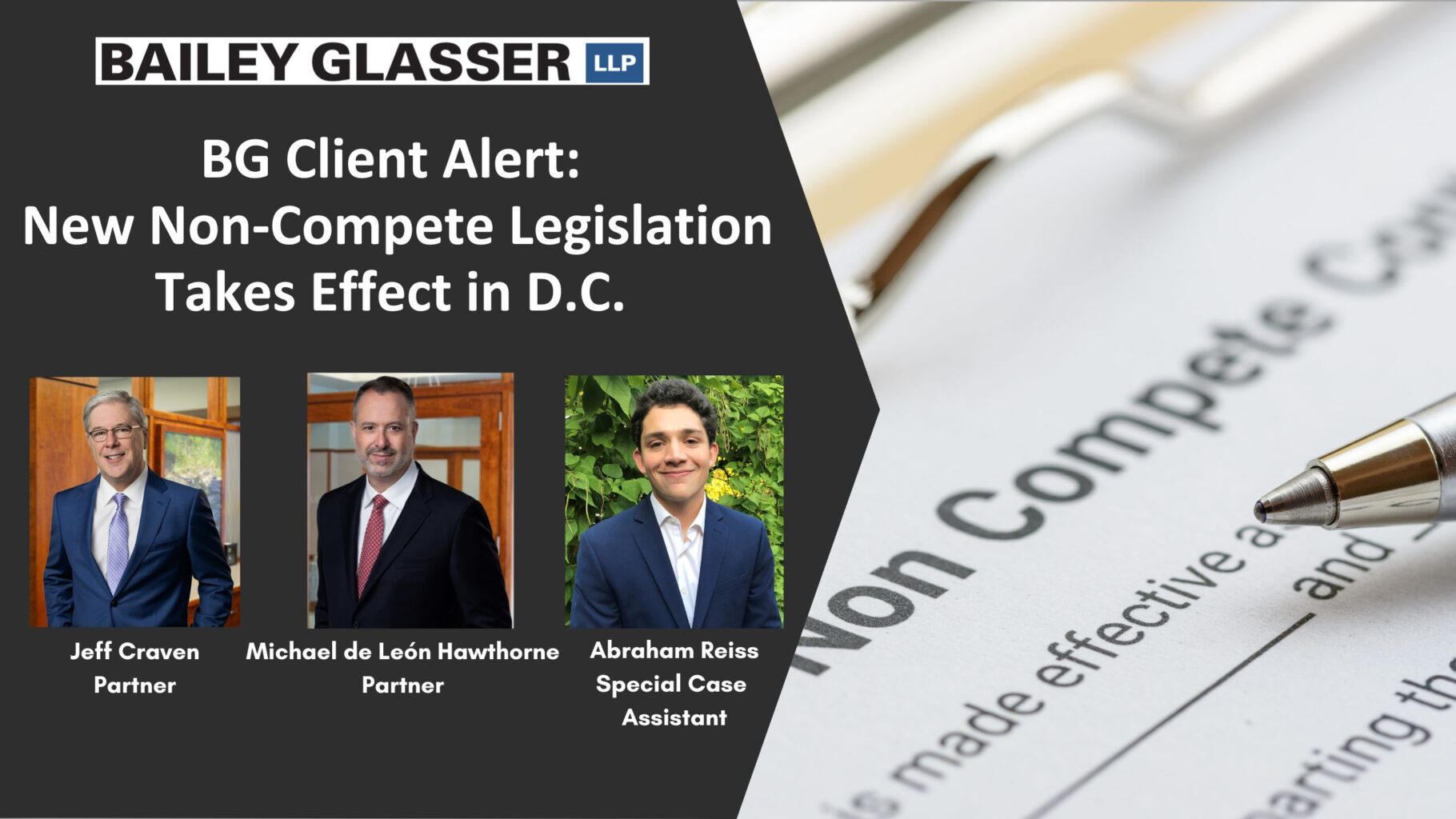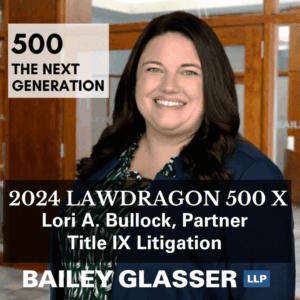
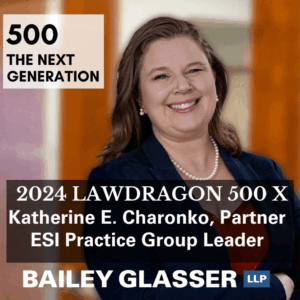
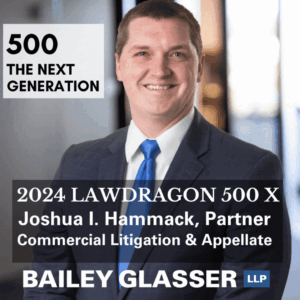
Bailey Glasser partners Lori A. Bullock, Katherine Charonko, and Joshua I. Hammack have been named to Lawdragon’s 2024 500 X – The Next Generation guide. This recognition acknowledges the achievements of the top 500 lawyers who have vaulted to the forefront of the legal profession. This Lawdragon recognition is prestigious as the 500 lawyers included were selected through a process of “select[ing] members of this guide through our time-honed process of submissions, independent research and vetting with friends and foes.”
Lori Bullock is an impactful litigator, handling challenging cases across several litigation areas, including Title IX athletics, labor and employment, sexual harassment, disability discrimination, education law, and civil rights, and is the managing partner of BG’s Des Moines, Iowa office. Lori has won ground-breaking Title IX settlements for student-athletes at nine U.S. colleges and universities for violating the federal civil rights law prohibiting sex discrimination at educational institutions receiving federal funds, including appeals to federal circuit court and the Supreme Court included in this submission. She was also part of the team that won the $5 million judgment against “MyPillow’s” Mike Lindell related to false claims made about the 2020 election.
Katherine Charonko is a litigator and head of the firm’s sophisticated and cutting-edge ESI group where she oversees e-discovery in complex disputes involving billions of documents and ensures proper collection, production, and review of electronic data. Kate holds the global Certified e-Discovery Specialist (CEDS) credential, a global recognition that assures clients and co-counsel that our approaches are compliant, efficient, cost-effective, and reduces risk in all phases of e-Discovery. In addition, Kate is a key part of the firm’s multidistrict litigation (MDL) teams, which concentrate largely on automotive and medical device product liability actions. She serves as liaison director of e-Discovery and ESI on several MDL leadership committees nationwide and has worked on landmark MDL matters including some of the largest vehicle defect litigations in history, including the Volkswagen emissions case, and many more. Indeed, Kate was recognized for her product liability work in this year’s Chambers & Partners accolades in the nationwide plaintiffs category, among other recognitions.
Joshua Hammack handles complicated matters from their inception through appeal. He has briefed and argued appeals in state and federal courts across the country for a host of substantive legal areas, including Title IX, the Commerce Clause, contract interpretation, deed construction, statutes of limitation, and the Video Privacy Protection Act. He has briefed multiple issues to the Supreme Court of the United States. In just the last eight months, he has argued before the Second, Sixth, and Ninth Circuits, as well as intermediate appellate courts in West Virginia and New York. Members of the firm regularly gather to watch or listen to his oral arguments, and he also hosts an annual training session on brief writing for lawyers at the firm.
To learn more about the 2024 LDX500 guide, visit: https://www.lawdragon.com/guides/2024-06-28-the-2024-lawdragon-500-x-the-next-generation

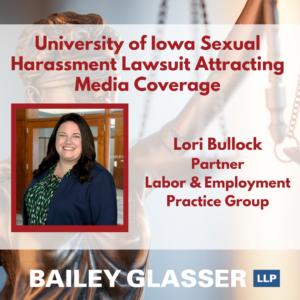 A Bailey Glasser lawsuit filed last week against the University of Iowa on behalf of a former professor for sexual harassment, gender-based discrimination, and unequal pay, is gaining local media attention – most recently by the Iowa Capital Dispatch, The People’s Network, and The Gazette.
A Bailey Glasser lawsuit filed last week against the University of Iowa on behalf of a former professor for sexual harassment, gender-based discrimination, and unequal pay, is gaining local media attention – most recently by the Iowa Capital Dispatch, The People’s Network, and The Gazette.
